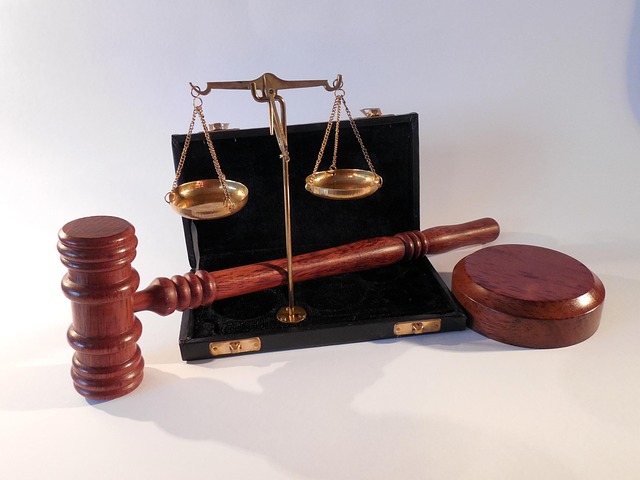Property Boundary Disputes Legal Advice: Specialized attorneys navigate complex issues like historical records, easements, and adverse possession. Cases often resolve through mediation or trials, with lawyers guiding clients on rights, negotiating settlements, and achieving fair outcomes. Meticulous research and robust documentation are key. Expert legal advice involves deep real estate law knowledge to aid clients in land ownership, zoning, and historical records challenges via negotiation, mediation, or litigation. Many disputes can be resolved outside court through cost-effective methods like arbitration or mediation.
“In the intricate landscape of property ownership, disputes can arise from seemingly simple issues, particularly regarding boundary lines. ‘Property Boundary Disputes’ delves into the heart of these conflicts, exploring various litigation types that landowners may encounter. From understanding the nuances of legal strategies to seeking expert legal advice, this article equips readers with knowledge. It navigates through court-based approaches and offers resolutions outside the courtroom. By shedding light on these aspects, it becomes easier for homeowners to protect their rights and make informed decisions regarding Property Boundary Disputes.”
- Understanding Property Boundary Disputes
- Types of Litigation for Landowners
- Legal Strategies in Property Conflicts
- Seeking Expert Legal Advice
- Resolving Disputes Outside Court
Understanding Property Boundary Disputes

Property Boundary Disputes are a common legal issue that arises when neighbors or property owners have disagreements about the exact location of their shared borders. These disputes can involve complex questions of law and fact, such as historical survey records, easements, and adverse possession claims. Seeking legal advice from experienced attorneys is crucial for navigating these intricate matters effectively.
For both corporate and individual clients across the country, property boundary disputes often require mediation or even jury trials to resolve. Legal professionals can help clients understand their rights and obligations, negotiate settlements, or prepare for court appearances. By delving into the specific circumstances of each case, attorneys can provide tailored strategies to protect their clients’ interests and ensure fair outcomes.
Types of Litigation for Landowners

Landowners often find themselves entangled in various legal disputes, particularly when it comes to issues surrounding property boundaries. These property boundary disputes can be complex and emotionally charged, requiring specialized legal advice tailored to their unique circumstances. Understanding the different types of litigation available is crucial for landowners seeking resolution.
One common type of legal action involves resolving land boundary conflicts. This may include cases where neighbors disagree on the exact location of a property line, leading to disputes over ownership rights and potential encroachment issues. Landowners can also face litigation related to easements—rights-of-way that allow access to specific areas of their property for various purposes, such as utility companies or neighbors’ access. Additionally, environmental claims and disputes over the use and development of land are becoming increasingly prevalent, requiring legal counsel well-versed in these areas to protect landowners’ interests, especially when navigating general criminal defense matters or addressing white collar and economic crimes.
Legal Strategies in Property Conflicts

In property boundary disputes, legal strategies often revolve around meticulous research and robust documentation. The first step for both parties involved is to gather comprehensive evidence, including historical records, survey reports, and any existing agreements or deeds. This foundational work is crucial in navigating complex issues of land ownership and delineation. Engaging the expertise of a skilled attorney specialized in real estate law is essential; they can provide vital legal advice tailored to the specific dispute, guiding clients through alternative resolution methods such as mediation or negotiation.
For high-stakes cases that escalate and require a more robust approach, jury trials become an option. These proceedings involve presenting compelling arguments and evidence before a jury of peers who will ultimately decide the outcome. While this path can be resource-intensive and time-consuming, it ensures a thorough examination of all evidence, making it a preferred strategy in cases where clear legal boundaries must be established or defended across the country.
Seeking Expert Legal Advice

When facing complex legal issues, such as property boundary disputes, seeking expert legal advice is paramount. It’s crucial to engage attorneys who possess a deep understanding of real estate law and have an established track record of success in navigating similar cases. This expertise can be invaluable, especially when dealing with intricate matters that often involve technicalities related to land ownership, zoning regulations, and historical records.
The right legal counsel should not only be well-versed in these areas but also adept at handling both corporate and individual client needs. Their unprecedented track record in resolving property disputes can provide assurance to clients facing what might seem like an insurmountable challenge. This specialized knowledge, combined with a client-centric approach, ensures that the best possible outcome is pursued, whether through negotiation, mediation, or litigation.
Resolving Disputes Outside Court

Many disputes can be resolved without going to court, offering a cost-effective and less stressful alternative for both parties involved. This is especially true for property boundary disputes, where mediation or arbitration might prove beneficial. Seeking legal advice early on in such situations can help navigate the process effectively. A lawyer specializing in real estate law can assist clients in understanding their rights and options, ensuring they make informed decisions.
By opting for out-of-court resolutions, parties can avoid the lengthy and expensive nature of litigation. Mediation, for instance, encourages open communication and collaborative problem-solving, which may lead to mutually agreeable outcomes. In some cases, arbitration can provide a faster and more private resolution compared to traditional court proceedings, ultimately achieving extraordinary results for his clients in property boundary disputes.
In navigating complex property boundary disputes, understanding various litigation types and legal strategies is paramount. Whether through court proceedings or alternative methods, seeking expert legal advice can significantly impact outcomes. By familiarizing themselves with options like mediation and arbitration, landowners can effectively resolve conflicts, ensuring fairness and protecting their rights regarding crucial matters of property ownership and boundaries.






